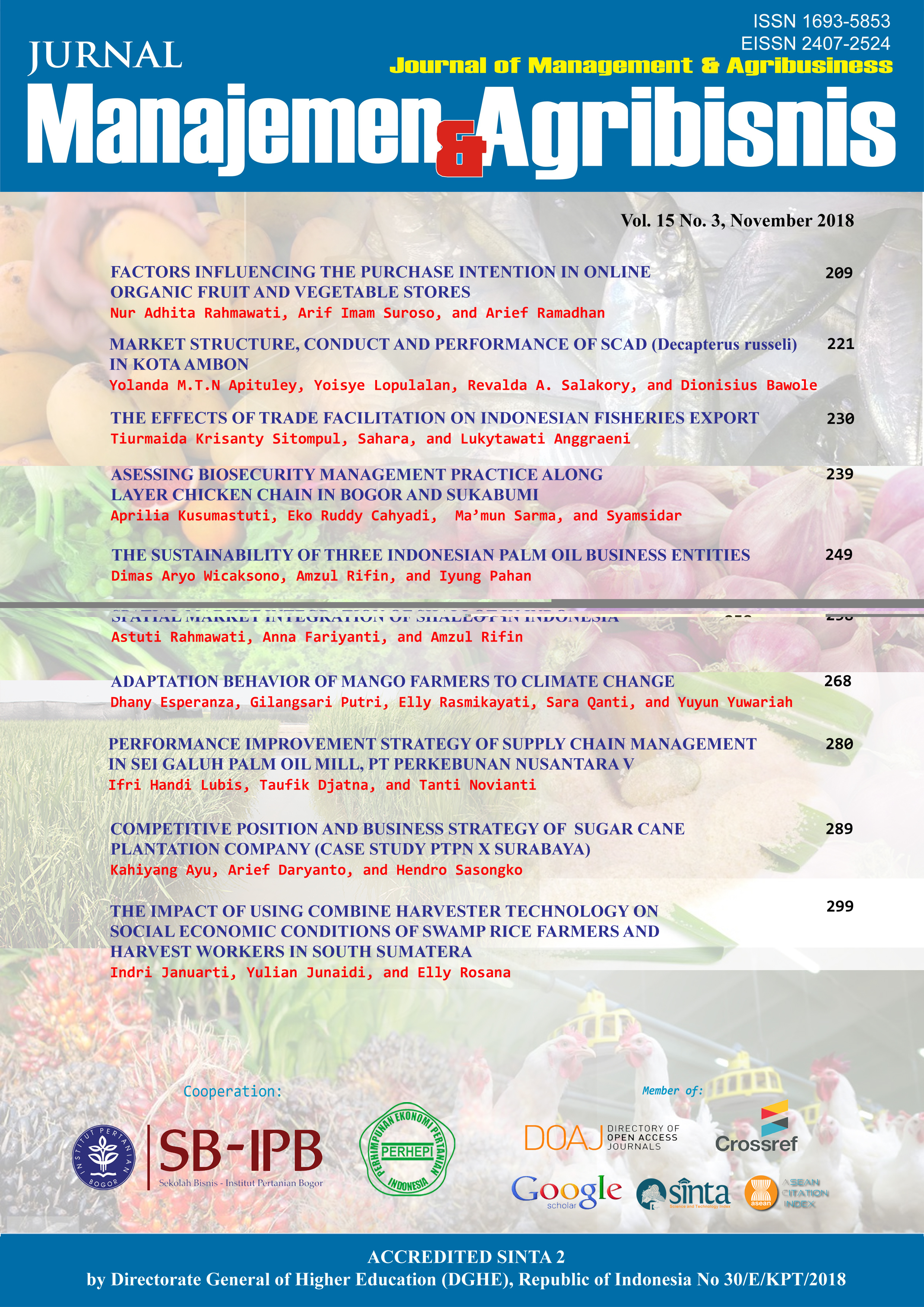The Effects of Trade Facilitation on Indonesian Fisheries Export
Abstract
The growth in the volume and export value of fishery subsector shows the importance role of its sector to Indonesian economy. The export performance is influenced by many aspects, including trade facilitation. The problem faced by Indonesia is the low quality of trade facilitation resulting in relatively high trade costs, and this will affect the export performance. This research aims to analyze the effect of trade facilitation as well as other related variables on the Indonesia export in the fishery subsector, shrimp commodity exports, and export of tuna, mackerel tuna, as well as skipjack tuna. This study used panel data with ten years time series from 2007 to 2016, and the cross section data included ten major export destination countries. The data were analyzed using the gravity model with fixed effect estimation method. The study results showed that trade facilitation and other related variables had an effect on Indonesian fishery, shrimp, and tuna, mackerel tuna, as well as skipjack tuna exports. Based on the research results, Indonesian fishery exports can be improved by, firstly improving capacity and quality port infrastructure. Secondly, improving capacity and quality of electricity supply. Thirdly, the institutional quality is primarily concerned with ethics and corruption, and fourthly, the efficiency of trade across border needs to be improved in the hope of increasing the Indonesian export in the fishery subsector.
Keywords: export, fishery, gravity model, trade facilitation
Authors
Authors who publish with this journal agree to the following terms:
- Authors retain copyright and grant the journal right of first publication with the work simultaneously licensed under a Creative Commons Attribution License that allows others to share the work with an acknowledgement of the work's authorship and initial publication in this journal.
- Authors are able to enter into separate, additional contractual arrangements for the non-exclusive distribution of the journal's published version of the work (e.g., post it to an institutional repository or publish it in a book), with an acknowledgement of its initial publication in this journal.
- Authors are permitted and encouraged to post their work online (e.g., in institutional repositories or on their website) prior to and during the submission process, as it can lead to productive exchanges, as well as earlier and greater citation of published work (See The Effect of Open Access).

